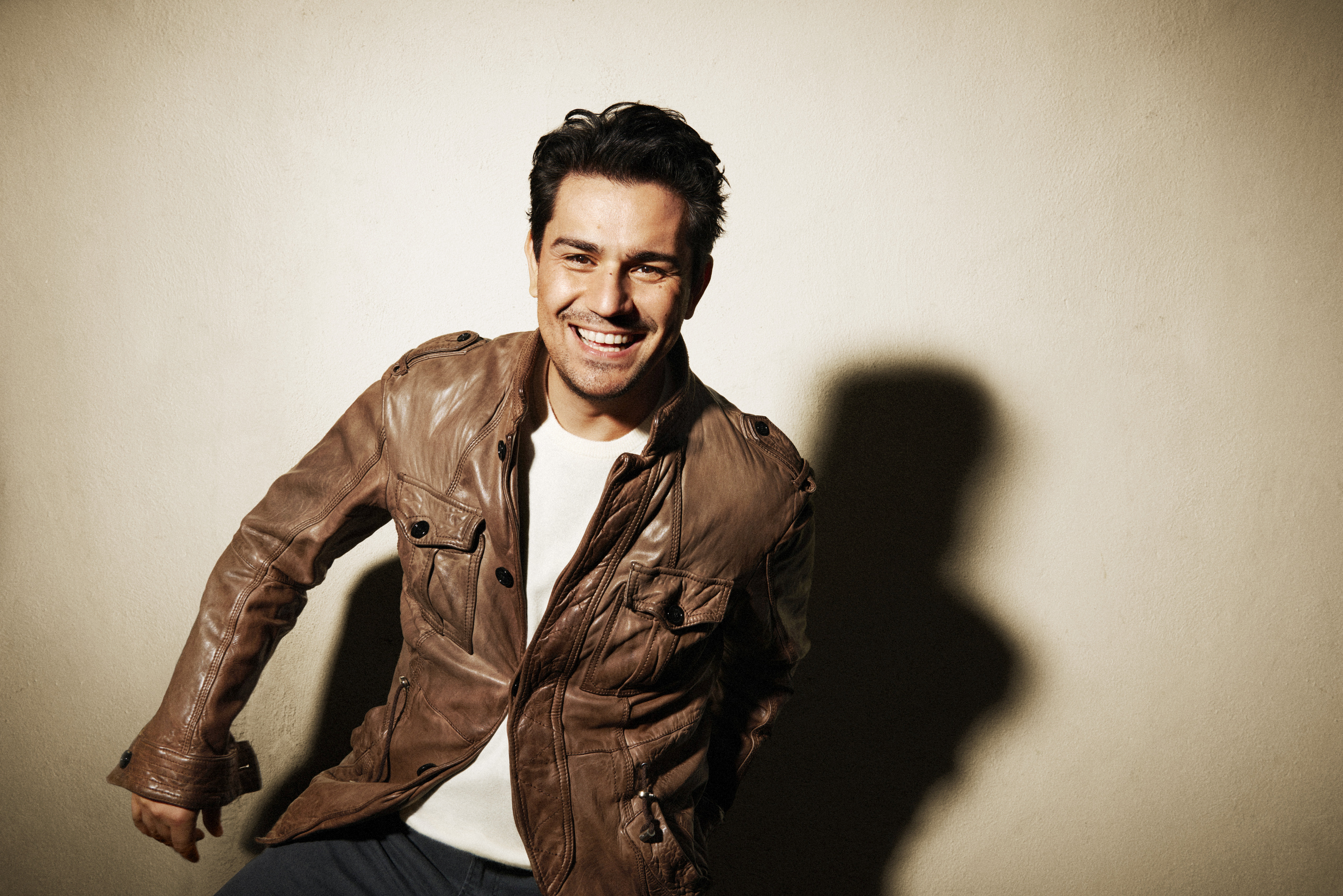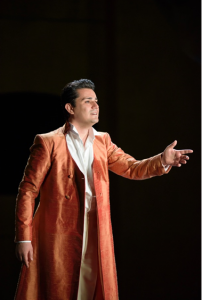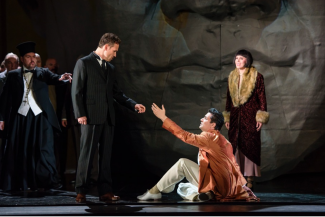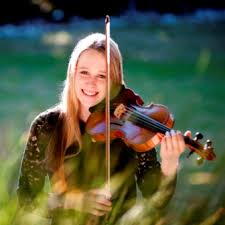In Conversation With Saimir Pirgu

If the state of Albania had its way, tenor Saimir Pirgu would have had a career as a violinist after state-sponsored talent scouts spotted him as a pre-schooler at the end of the Communist regime. His parents went along with the plan. But, in a case of State v Fate, the precociously gifted musician, inspired by watching the three tenors in concert on TV, veered away from the instrument that the dictatorship decided he would play and travelled to Italy at the age of 18 to seek his fortune as a singer.
In six months he had sung for one of those tenors, Luciano Pavarotti who became a mentor, “And in ten years, I was sharing the stage at the Met with Placido” he says, with disarming humility.
The thirty-five year old Verona-based tenor, is in Sydney to reprise his role as Shepherd in the three-act opera King Roger by the Polish composer Karol Szymanowski, which premiered in 1926. It is a part he performed at the Royal Opera Covent Garden in the co-production with Opera Australia and Dallas Opera. This Kasper Holten realisation premiered at the Royal Opera in May 2015. The New York Times described it as “a production for our times” and The Guardian said “It is easily the best thing Holten has directed since he became its head of opera.” The DVD of the production has gone on to win a nomination for Best Opera Recording at the 2017 Grammys, with the winners to be announced in February this year.


Pirgu was relaxed and expansive when I spoke to him in a café in sweltering Sydney on a day off from rehearsals. There is a rich legacy of music from Szymanowski’s compatriots like Chopin, Lutoslawski, Górecki and Pendericki, but little of it is in the form of opera and inevitably the conversation turns to what it is like to sing in Polish.
“It is one of the hardest things I have to do, and it’s not even like Albanian” says Pirgu with a ready smile, his eyes twinkling. “Other languages – especially Italian, have many vowels to sing where you can open up the voice. Polish not only has many consonants, but the consonant are all together, and it’s harder to sing than Czech” he explains. “But the music” he adds, is so exotic and mysterious – other composers went to Seville or Istanbul to set their operas. Szymanowski set King Roger in Sicily which is a meeting place of all cultures and has such a long history. It is like nothing ever before – the audience is shocked in the first minutes of the opera – shocked by the beauty and the power of the music. Nothing else from the 20th century makes you feel like this – so Szymanowski really should be considered as one of the most genius composers.”
At the time of its writing, Szymanowski was torn between naming the opera after the king and his nemesis, the shepherd, a mysterious foreigner who questions the established order of things and quickly builds a following (sound familiar?). Eventually, the king won the title of the opera, although says Pirgu, searching for the perfect words to deliver his insights, “From the first pages of the story Szymanowski was thinking ‘Who is the real hero – Roger or Shepherd?’ He was fighting with himself even for the name of the story and he went with King Roger because it connects better. But the part of Shepherd is really important. Roxana has a beautiful aria, but the real action is between me (Shepherd) and him (Roger).”
“The story is really visionary and can be anywhere at any time” continues Pirgu. “The story of humanity is repeating itself; we face the same problems and for some reason we make the same mistakes. With Kasper Holten, the idea was to imagine being in a position with the possibility to change the world – and why not?”
“Shepherd” says Pirgu “has no name in the story. He could be someone or he could be everybody. He is just a simple person with strong energy who is completely different than other people.”
He adds “I have been singing in traditional operas like Traviata and Boheme so many times, the fact that the Royal Opera House and (Antonio) Pappano asked me to sing something completely different, for me, was unusual but it was the best choice that I have done in my career to learn something that really has given me a lot of knowledge and the opportunity to develop new music. It is a unique, beautiful and amazing role.”
Pirgu has garnered an impressive tally of roles for one aged just thirty-five and only fifteen years into his career. From Mozart (Don Ottavio, Idomeneo and Tamino) through grand opera (Rodolfo, Macduff and Germont) to bel canto (Nemorino, Tebaldo and Edgardo), these are roles he has performed in return visits in the major houses of the world. Sensibly he says “I want to stay at this level for as long as possible and see how my voice will develop. I’m quite happy, because it is the most important kind of repertoire. The voice is like wine – it gets better with time and after a while you really understand how some wine is more expensive and some less.” For Pirgu, working in a profession where he is very much an individual player, he is his own yardstick and is content to mature at his own pace. “I like to be able to do a role and then come back to it a few years later to see how my voice has developed.”
It is part of a career plan which includes an acute awareness of a grand history, elements of talent and luck, but also unrelenting effort. “My belief is that yes, I am a very fortunate person, but also you need to work hard – especially in this kind of atmosphere nobody gives you anything for nothing. You need to be present, you need to give something. I’m not creating art I’m just singing something that is created for many many years and in those years, there are a lot of other tenors who have sung the role. If you want to do something better, you need to have the possibility to come back after a few years and sing the same role in the same place and show something different in your development. If I do Don Giovanni in Vienna in 2006 and come back in 2010 and show again how it is. Perhaps it is better, but if it is not so good, I can move to other repertoire and sing Verdi or Lucia.”
His role models include Wunderlich, Carreras and Giaccomini, but for Pirgu, his memory of Luciano Pavarotti is indelible. “Luciano was king of the tenors,” he reminisces. “Every single lyric role I am singing, I sang with him – L’elisir, Traviata, Lucia, Rigoletto. They’re in my memory like small windows and every time I need something I go there and pick up something.”
Delving deeper into the past Pirgu goes on. “Luciano had his own energy about him. He could attract a lot of people and the more simple and honest you were, the closer you can be to him. He was a very warm person. He can watch you and get what you have inside you so it was quite easy to be close to him for a poor innocent like me who comes from a little country and who wants to be tenor!”
Claudio Abbado, also a mentor, was a complete contrast and much more clinical in his approach. Pirgu was chosen by the maestro at the age of just 22 to sing the role of Ferrando in Cosi fan Tutte. Abbado’s scent for talent was instinctive, says Pirgu . “As soon as I did the audition with him he pointed to the casting director and said “Make him a contract”…. and then he left! And I didn’t even sing the full aria! I arrived late because my plane was delayed by more than 2 hours. He was rehearsing with somebody else and heard me during his break. I was auditioning for Ferrando ‘il cavaliere dell’Albania’ in Cosi fan tutte, and as I am from Albania, he thought it will be a good idea…. and everybody was telling him to wait because I was only 22 and how I can sing with big stars like Antonacci and Raimondi? But he was more courageous than everybody. I remember Abbado’s daughter telling me that it is only after 10 or 15 years I would realise what he has done for me – and this is true! Only now I can imagine the knowledge and power that he had to cut open which is better and which is the right one – it was his experience with talent.”
Saimir’s sunny disposition is infectious; his optimism is integral to his charisma and his success. “I am a very positive person” he insists. “Humanity always has the possibility to choose the right thing. At thirty-five, I am still learning a lot and my instinct is good. With good care of your voice, with the years and training, you develop other colours and other possibilities – and calm! The music gives you another level of energy that when you’re young you cannot experience. Music, I think, has a lot to do with spirituality and the belief in God – to find in God in some way.”
Shamistha de Soysa for SoundsLikeSydney©
You can see Opera Australia’s co-production of King Roger at the Joan Sutherland Theatre of the Sydney Opera House on selected dates from January 20 – February 15, 2017.





